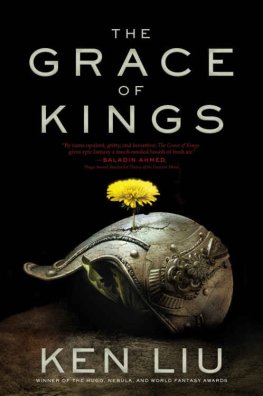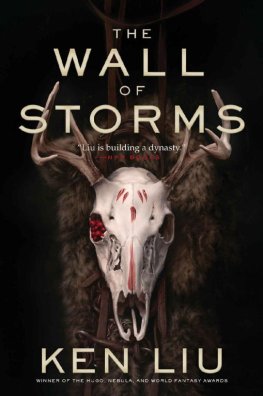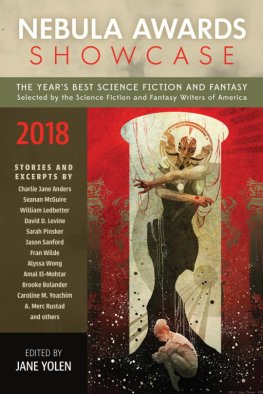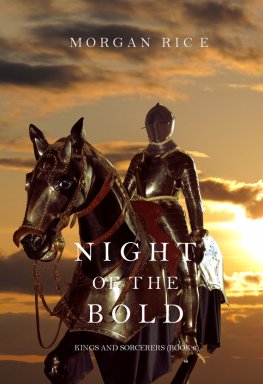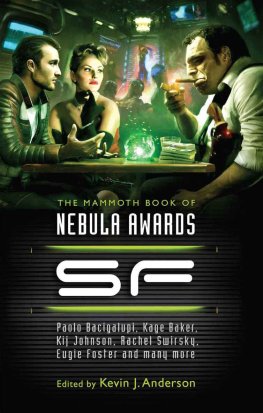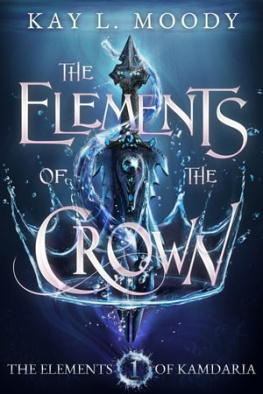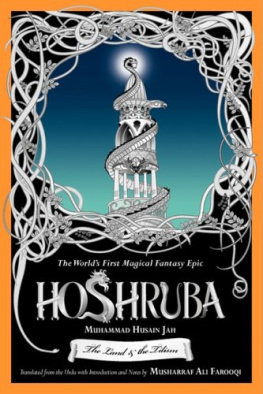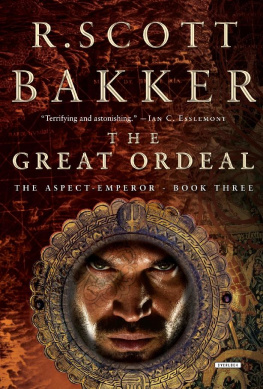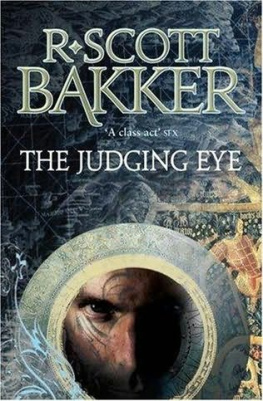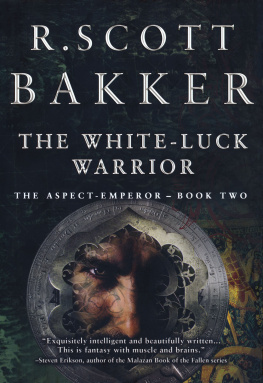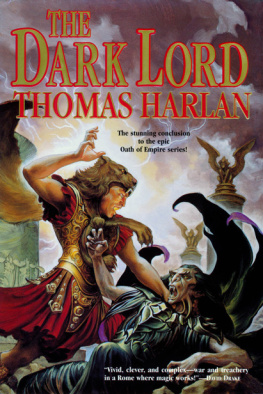Ken Liu
The Grace of Kings
For my grandmother, who introduced me to the great heroes of the Han Dynasty. Ill always remember the afternoons we spent together listening to pingshu storytellers on the radio.
And for Lisa, who saw Dara before I did.

Many names in Dara are derived from Classical Ano. The transliteration for Classical Ano in this book does not use vowel digraphs; each vowel is pronounced separately. For example, Rfiroa has four distinct syllables: R-fi-ro-a. Similarly, Na-aronna has five syllables: Na-a-ro-n-na.
The i is always pronounced like the i in English mill.
The o is always pronounced like the o in English code.
The is always pronounced like the umlauted form in German or Chinese pinyin.
Other names have different origins and contain sounds that do not appear in Classical Ano, such as the xa in Xana or the ha in Haan. In such cases, however, each vowel is still pronounced separately. Thus, Haan also contains two syllables.
THE CHRYSANTHEMUM AND THE DANDELION
KUNI GARU: a boy who prefers play to study; the leader of a street gang; and much more.
MATA ZYNDU: a boy noble in stature and spirit; last son of the Zyndu Clan.
KUNIS RETINUE
JIA MATIZA: the daughter of a rancher; a skilled herbalist; Kunis wife.
COGO YELU: a clerk in Zudis city government; Kunis friend in high places.
LUAN ZYA: scion of a noble family in Haan; adventurer among the people of Tan Ad.
GIN MAZOTI: an orphan on the streets of Dimushi; seeker of fortune during the rebellion.
RIN CODA: childhood friend of Kuni.
MN AKRI: a butcher; one of Kunis fiercest warriors.
THAN CARUCONO: an old stable master in Zudi.
LADY RISANA: an illusionist and accomplished musician.
DAFIRO MIRO: Daf; one of the first rebels under Huno Krima; brother of Ratho Miro.
SOTO: Jias housekeeper.
MATAS RETINUE
PHIN ZYNDU: Matas uncle; his tutor and surrogate parent.
TORULU PERING: an old scholar; Matas adviser.
THCA KIMO: a rebel also from Tunoa.
LADY MIRA: an embroiderer and songstress from Tunoa; the only woman who understands Mata.
RATHO MIRO: Rat; one of the first rebels under Huno Krima; brother of Dafiro Miro.
THE XANA EMPIRE
MAPIDR: First Emperor of the Seven Islands of Dara; named Ron when he was King of Xana.
ERISHI: Second Emperor of the Seven Islands of Dara.
GORAN PIRA: Chatelain of Xana; childhood friend of King Ron.
LGO CRUPO: Regent of Xana; a great scholar and calligrapher.
TANNO NAMEN: revered General of Xana.
KINDO MARANA: the empires chief tax collector.
THE TIRO KINGS OF THE SIX STATES
PRINCESS KIKOMI AND KING PONADOMU OF AMU: the jewel of Arulugi and her granduncle.
KING THUFI OF COCRU: once a shepherd; urges the Tiro kings to unite.
KING SHILU OF FAA: ambitious but careful of self-preservation; interferes with Rima.
KING DALO OF GAN: oversees the wealthiest realm of the Six States.
KING COSUGI OF HAAN: an old king who may have lost his appetite for risk.
KING JIZU OF RIMA: a young prince who grew up as a fisherman.
THE REBELLION
HUNO KRIMA: leader of the first rebels against Xana.
ZOPA SHIGIN: companion of Huno; leader of the first rebels against Xana.
THE GODS OF DARA
KIJI: patron of Xana; Lord of the Air; god of wind, flight, and birds; his pawi is the Mingn falcon; favors a white traveling cloak.
TUTUTIKA: patron of Amu; youngest of the gods; goddess of agriculture, beauty, and fresh water; her pawi is the golden carp.
KANA AND RAPA: twin patrons of Cocru; Kana is the goddess of fire, ash, cremation, and death; Rapa is the goddess of ice, snow, glaciers, and sleep; their pawi are twin ravens: one black, one white.
RUFIZO: patron of Faa; Divine Healer; his pawi is the dove.
TAZU: patron of Gan; unpredictable, chaotic, delighting in chance; god of sea currents, tsunamis, and sunken treasures; his pawi is the shark.
LUTHO: patron of Haan; god of fisherman, divination, mathematics, and knowledge; his pawi is the sea turtle.
FITHOWO: patron of Rima; god of war, the hunt, and the forge; his pawi is the wolf.
ZUDI: THE SEVENTH MONTH IN THE FOURTEENTH YEAR OF THE REIGN OF ONE BRIGHT HEAVEN.
A white bird hung still in the clear western sky and flapped its wings sporadically.
Perhaps it was a raptor that had left its nest on one of the soaring peaks of the Er-M Mountains a few miles away in search of prey. But this was not a good day for hunting a raptors usual domain, this sun-parched section of the Porin Plains, had been taken over by people.
Thousands of spectators lined both sides of the wide road out of Zudi; they paid the bird no attention. They were here for the Imperial Procession.
They had gasped in awe as a fleet of giant Imperial airships passed overhead, shifting gracefully from one elegant formation to another. They had gawped in respectful silence as the heavy battle-carts rolled before them, thick bundles of ox sinew draping from the stone-throwing arms. They had praised the emperors foresight and generosity as his engineers sprayed the crowd with perfumed water from ice wagons, cool and refreshing in the hot sun and dusty air of northern Cocru. They had clapped and cheered the best dancers the six conquered Tiro states had to offer: five hundred Faa maidens who gyrated seductively in the veil dance, a sight once reserved for the royal court in Boama; four hundred Cocru sword twirlers who spun their blades into bright chrysanthemums of cold light that melded martial glory with lyrical grace; dozens of elegant, stately elephants from wild, sparsely settled cofi Island, painted with the colors of the Seven States the largest male draped in the white flag of Xana, as one would expect, while the others wore the rainbow colors of the conquered lands.
The elephants pulled a moving platform on which stood two hundred of the best singers all the Islands of Dara had to offer, a choir whose existence would have been impossible before the Xana Conquest. They sang a new song, a composition by the great imperial scholar Lgo Crupo to celebrate the occasion of the Imperial tour of the Islands:
To the north: Fruitful Faa, green as the eyes of kind Rufizo,
Pastures ever kissed by sweet rain, craggy highlands shrouded in mist.
Soldiers walking next to the moving platform tossed trinkets into the crowd: Xana-style decorative knots made with bits of colorful string to represent the Seven States. The shapes of the knots were meant to evoke the logograms for prosperity and luck. Spectators scrambled and fought one another to catch a memento of this exciting day.
To the south: Castled Cocru, fields of sorghum and rice, both pale and dark,
Red, for martial glory, white, like proud Rapa, black, as mournful Kana.
The crowd cheered especially loudly after this verse about their homeland.
To the west: Alluring Amu, the jewel of Tututika,
Luminous elegance, filigreed cities surround two blue lakes.
To the east: Gleaming Gan, where Tazus trades and gambles glitter,
Wealthy as the seas bounty, cultured like the scholars layered gray robes.
Walking behind the singers, other soldiers held up long silk banners embroidered with elaborate scenes of the beauty and wonder of the Seven States: moonlight glinting from snowcapped Mount Kiji; schools of fish sparkling in Lake Tututika at sunrise; breaching crubens and whales sighted off the shores of Wolfs Paw; joyous crowds lining the wide streets in Pan, the capital; serious scholars debating policy in front of the wise, all-knowing emperor.

